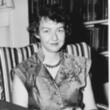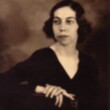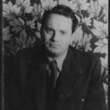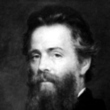New Orleans Sketches
(Libby/OverDrive eBook, Kindle)
Author
Contributors
Published
University Press of Mississippi , 2002.
Status
Available from Libby/OverDrive
Available Platforms
Libby/OverDrive
Titles may be read via Libby/OverDrive. Libby/OverDrive is a free app that allows users to borrow and read digital media from their local library, including ebooks, audiobooks, and magazines. Users can access Libby/OverDrive through the Libby/OverDrive app or online. The app is available for Android and iOS devices.
Kindle
Titles may be read using Kindle devices or with the Kindle app.
Description
"In 1925 William Faulkner began his professional writing career in earnest while living in the French Quarter of New Orleans. He had published a volume of poetry (The Marble Faun), had written a few book reviews, and had contributed sketches to the University of Mississippi student newspaper. He had served a stint in the Royal Canadian Air Corps and while working in a New Haven bookstore had become acquainted with the wife of the writer Sherwood Anderson. In his first six months in New Orleans, where the Andersons were living, Faulkner made his initial foray into serious fiction writing. Here in one volume are the pieces he wrote while in the French Quarter. These were published locally in the Times-Picayune and in the Double Dealer. The pieces in New Orleans Sketches broadcast seeds that would take root in later works. In their themes and motifs these sketches and stories foreshadow the intense personal vision and style that would characterize Faulkner's mature fiction. As his sketches take on parallels with Christian liturgy and as they portray such characters as an idiot boy similar to Benjy Compson, they reveal evidence of his early literary sophistication."-- Amazon.com.
Similar Titles From NoveList
NoveList provides detailed suggestions for titles you might like if you enjoyed this book. Suggestions are based on recommendations from librarians and other contributors.
Before I wake - Morrell, David
These books have the genres "short stories" and "literary fiction."
These books have the appeal factors lyrical and stylistically complex, and they have the genres "short stories" and "literary fiction."
These books have the genres "short stories" and "literary fiction."
These books have the appeal factors lyrical, and they have the genres "short stories" and "literary fiction."
These books have the appeal factors haunting, melancholy, and lyrical, and they have the genres "short stories" and "southern fiction."
These books have the genres "short stories" and "literary fiction."
These books have the appeal factors haunting and lyrical, and they have the genres "short stories" and "literary fiction."
T.C. Boyle stories II: Volume II :the collected stories of T. Coraghessan Boyle - Boyle, T. Coraghessan
These books have the appeal factors lyrical, and they have the genres "short stories" and "literary fiction."
These books have the genres "short stories" and "literary fiction."
These books have the appeal factors stylistically complex, and they have the genres "short stories" and "literary fiction."
These books have the appeal factors melancholy, haunting, and lyrical, and they have the genres "short stories" and "literary fiction."
These books have the appeal factors lyrical and leisurely paced, and they have the genres "short stories" and "literary fiction."
Similar Authors From NoveList
NoveList provides detailed suggestions for other authors you might want to read if you enjoyed this book. Suggestions are based on recommendations from librarians and other contributors.
Both William Faulkner and Cormac McCarthy use dense, lush prose and elliptical storytelling in their literary fiction. Both write about deep issues of humanity and morality, usually with a dark tone, and devote great care to developing their settings; fans of Faulkner's fictional Yoknapatawpha County, Mississippi will appreciate McCarthy's novels set in the South. -- Victoria Fredrick
Both William Faulkner and Antonio Lobo Antunes write leisurely paced, complex, and character-driven stories marked by psychological depth, vivid and atmospheric descriptions, and keenly perceptive, frequently cynical commentaries on oppressive societies. Faulkner's prose is difficult and elegant while Antunes' is lyrical and dense, but both use experimental styles. -- Derek Keyser
Both Louise Erdrich and William Faulkner combine a supple, poetic writing style with vividly realized settings and unforgettable characters -- and both are known for creating fully realized communities. Both also frequently set up complex, interlocking narratives. -- Shauna Griffin
These authors create stylistically complex, leisurely paced, and intricately plotted novels, often with a moody or bleak tone and a lyrical style. The psychological aspects of social pressures are common themes in their American, usually 20th century, settings. William Faulkner is more descriptive and Ralph Ellison more dialogue-rich, but both leave haunting impressions. -- Matthew Ransom
William Faulkner's readers will find many similarities in Toni Morrison. Morrison blends harsh realism and mysticism into her multi-layered, challenging stories, exploring race and life across centuries in rich, lyrical, dense, and even experimental prose. -- Krista Biggs
Though Jennifer Makumbi is a 21st-century Ugandan author and William Faulkner is a 20th-century American, both employ complex writing styles, sweeping storylines, multiple perspectives, the power of family myths and traditions, and the effects of past tragedies to relate affecting tales about people beset by circumstances beyond their control. -- Katherine Johnson
Paul Harding illuminates haunting, atmospheric, rural New England characters and settings like William Faulkner's rural Southern ones. Both are concerned with generations of their fictional families who struggle to find meaning in life and reason in death. Their leisurely paced narratives are descriptive, stylistically complex, and can be lyrical. -- Matthew Ransom
Both Jesmyn Ward and William Faulkner write of human drama in a first-person style through characters that, though uneducated, have rich, complex inner lives and speak with erudition and lyricism. Both authors have set multiple novels in richly detailed locations of the American South that are entirely of their own creation. -- Shauna Griffin
These authors' works have the appeal factors first person narratives, and they have the genres "southern fiction" and "classics"; the subjects "dysfunctional families," "race relations," and "racism"; and characters that are "flawed characters" and "complex characters."
These authors' works have the appeal factors bleak and stream of consciousness, and they have the genres "southern fiction" and "southern gothic"; and the subjects "sharecroppers," "farm life," and "rural life."
These authors' works have the appeal factors unconventional, and they have the genres "southern fiction" and "classics"; and the subject "sharecroppers."
These authors' works have the appeal factors menacing, and they have the genre "southern fiction"; the subjects "farm life," "rural life," and "family problems"; and characters that are "flawed characters," "complex characters," and "brooding characters."
Reviews from GoodReads
Loading GoodReads Reviews.
Citations
APA Citation, 7th Edition (style guide)
Faulkner, W., & Collins, C. (2002). New Orleans Sketches . University Press of Mississippi.
Chicago / Turabian - Author Date Citation, 17th Edition (style guide)Faulkner, William and Carvel Collins. 2002. New Orleans Sketches. University Press of Mississippi.
Chicago / Turabian - Humanities (Notes and Bibliography) Citation, 17th Edition (style guide)Faulkner, William and Carvel Collins. New Orleans Sketches University Press of Mississippi, 2002.
Harvard Citation (style guide)Faulkner, W. and Collins, C. (2002). New orleans sketches. University Press of Mississippi.
MLA Citation, 9th Edition (style guide)Faulkner, William, and Carvel Collins. New Orleans Sketches University Press of Mississippi, 2002.
Note! Citations contain only title, author, edition, publisher, and year published. Citations should be used as a guideline and should be double checked for accuracy. Citation formats are based on standards as of August 2021.
Copy Details
| Collection | Owned | Available | Number of Holds |
|---|---|---|---|
| Libby | 1 | 1 | 0 |
Staff View
Loading Staff View.































